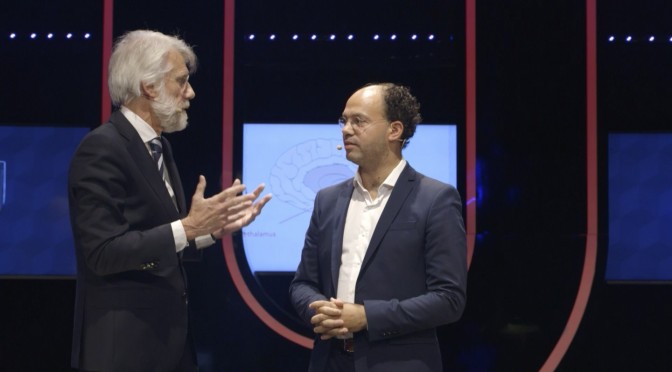In my first job out of high school, when I was barely 18 years old, I had one of the best bosses out there. Lewie had no reason to give me special attention. He had no reason to be interested in my success. Yet over and over again, he mentored me, believed the best in me, and gave me wisdom, resources, and ideas when it didn’t benefit him in the least.
At least once a week, Lewie would take me out to lunch or drinks and drill me with questions. He rarely ever told me the right answer—he just asked insightful questions that made me rethink my decisions or actions. And with each conversation, I grew a little bit more.
Lewie was a generous leader.
When I think of Lewie and other generous leaders I’ve had the opportunity to imitate, several traits come to mind. Generous leaders:
- Want their people to succeed.
- Are not competitive with their team.
- Have an open-door policy (generous with their time).
- Would rather err on the side of grace than be just or strict with policies.
- Have an open hand.
- Freely share what they are learning.
- Love to give away credit to others even when they could rightly keep it for themselves.
- Care about their team. They know about each team member’s goals and dreams, and diligently try to help them fulfill those desires.
It’s counterintuitive, isn’t it? We think to achieve more, we must keep more for ourselves. We’ve been taught to work hard and climb the ladder, even if it means climbing over others to get to the top.
More than a decade ago, Tim Sanders wrote a timeless book called Love Is the Killer App. I love what he says on this topic:
The most powerful force in business isn’t greed, fear, or even the raw energy of unbridled competition. The most powerful force in business is love. It’s what will help your company grow and become stronger. It’s what will propel your career forward. It’s what will give you a sense of meaning and satisfaction in your work, which will help you do your best work.
Love is such a squishy word. We all likely have a different definition of love based on how we grew up or the quality of relationships we have experienced. Sanders defines love as the selfless promotion of growth in another. “When you help others grow to become the best people that they can be, you are being loving—and as a result, you grow.”
The opposite of a generous leader, then, is a selfish leader. Selfish leaders:
- Keep the credit for themselves.
- Circle all conversations back to him or herself.
- Hide competitive advantages from his team.
- Are always looking to determine blame for mistakes (“Whose fault was this?” rather than “We made a mistake, let’s learn from it and keep going.”)
My experience with selfish people is that they are often stressed, tense, bitter, angry, critical, argumentative, and bullying. Generous people, on the other hand, are genuinely happy. They aren’t constantly determining their self-worth by how far they are above others. They have a great day when they’ve had the chance to add value to others.
And lest you think generous people are happy but poor, or that they feel good about themselves but it doesn’t translate into an economic benefit for themselves or their company, you might tune into this final quote by Sanders:
People who love what they’re doing, who love to learn new things, to meet new people, and to share what and whom they know with others: These are the people who wind up creating the most economic value and, as a result, moving their companies forward.
It’s undeniable. Generous leaders win. The question is, what steps can you take today to become more generous in your leadership? Figure it out and take a step.
—Tim Stevens is the author of Fairness Is Overrated: And 51 Other Leadership Principles to Revolutionize Your Workplace (Thomas Nelson, January 6, 2015). Tim is also a team leader with Vanderbloemen Search Group, an executive search firm that helps churches and ministries find great leaders. For more information, visit www.FairnessIsOverrated.com.






